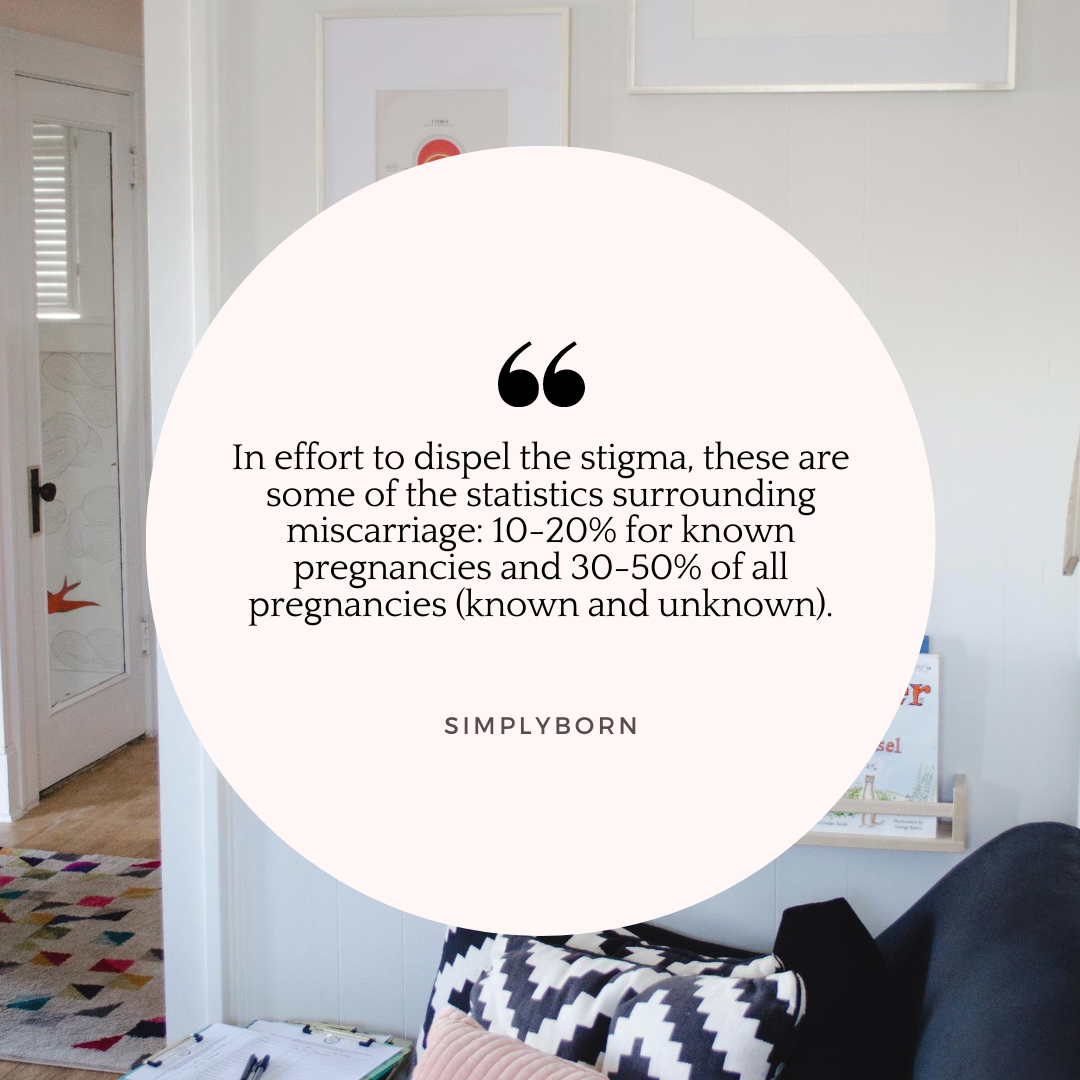Trust yourself and your baby. You do know how to help your baby and your baby is telling you what they need. They do not know how to trick you, manipulate you, they only know their needs.
Read moreFetal presentations during labor
The position a baby finds itself in during labor dictates how the baby needs to be born. The fetal position dictates how the baby is going to rotate to come through the pelvis. A “textbook birth” has the baby essentially corkscrew as they are born. Other positions pose an inconvenience, they may slow labor, change the sensations felt by the birther, or slow the pushing stage. There are some positions that don't work well with the pelvis and these babies need to be born by cesarean.
Navigating pregnancy in a pandemic
The best practice is to wear a mask when interacting with people outside your household, limit close contact with others as much as possible, wash your hands regularly and avoid situations that make physical distancing and protective measures difficult.
Loss and miscarriage // SimplyBorn Midwifery Services
Loss is complicated and difficult to discuss, for anyone. Miscarriage is as much a part of midwifery care as pregnancy, labor or birth. It is intrinsically linked to the care midwives provide their patients, and as such we feel it deserves a spotlight.
Many do not discuss their loss or communicate feelings that surround it. We rarely confide in others about this experience. In effort to dispel the stigma, these are some of the statistics surrounding miscarriage: 10-20% for known pregnancies and 30-50% of all pregnancies (known and unknown).
As a society, miscarriage tends to be brushed under the rug, we don’t like to talk about it because of grief, sadness, guilt and shame. Or some unfortunate combination of all the feelings. This silence can be damaging to ourselves and to others; seeking support in community is a critical part of healing after a miscarriage.
Causes & Risk Factors of Miscarriage
Miscarriage occurs for a number of the following reasons, though it isn’t always possible to determine an exact cause.
Chromosomal anomalies (blighted ovum, chemical pregnancy, molar pregnancy, etc)
Infection
Exposure to environmental/ workplace hazards
Improper implantation of the egg (ex. ectopic)
Maternal age
Hormone problems (PCOS, luteal phase defect)
Uterine or cervical abnormalities
Long-term health conditions (kidney, thyroid, autoimmune, etc)
Uncontrolled diabetes
Obesity
Congenital heart disease
Exposure to radiation, certain medications, illicit drugs, alcohol, smoking, caffeine
Invasive prenatal tests
The risk of miscarriage does unfortunately increase with maternal age. Those who are pregnant under the age of 30 have an overall miscarriage rate of 1 in 10. People aged 30-39 have a average miscarriage rate of 2 in 10; and those over the age of 45 have a miscarriage rate of 5 in 10.
The Progesterone Issue
One of our major points of focus at SimplyBorn is the role of progesterone during pregnancy. Over the past several years we have observed a marked increase in low progesterone levels in our clientele. These low levels increase the risk of early pregnancy loss and preterm labor. Because we are aware of the link between low progesterone and miscarriage it our goal to assess and educate all our clients at the onset of care and initiate progesterone supplementation, when appropriate, to attemp to reduce risk of miscarriage when possible.
Progesterone is produced by the corpus luteum until 12 weeks gestation when the placenta takes over this responsibility. Progesterone plays a role in the health and wellness of the fetus, maintenance of pregnancy, promotion of breast tissue growth, prevention of lactation during pregnancy, among many other roles. Low progesterone levels are often referred to as luteal phase deficiency/insufficiency. Signs of low progesterone are: spotting before your cycle, irregular cycle, short cycle, long and/or heavy cycle, frequent/repeat miscarriages, estrogen dominance. If you have concerns related to hormonal levels please speak with your primary care provider to see if testing may be right for you.
Research is lacking in this field of study and as such we don’t have all the answer to why luteal phase defects occur, preventative measures, etc. What we do know is that early identification of low progesterone levels and prompt supplemental support can prove effective at supporting pregnancies to full term without adverse effects. Please note that while it works well for some people, progesterone may not be effective at supporting a healthy pregnancy. As discussed earlier miscarriage can occur for a variety of reasons, progesterone supplementation will only be effective at maintaining a pregnancy if the primary cause of miscarriage is low progesterone.
Tall Tales
As with many taboo subjects there is a fair amount of pervasive, incorrect information floating around. It is important to remember that miscarriage often occurs for reasons that the parents cannot control (ex. chromosomal anomalies).
The following things are NOT linked to increased risk of miscarriage:
Maternal emotional state (stress/depression)
Emotional shock
Exercise
Lifting or straining
Working during pregnancy
Sex during pregnancy
Travelling by air
Eating spicy food
What to Expect
Some people learn their pregnancy isn’t viable in the office or at an appointment; and some discover it in a restaurant bathroom. It may begin with spotting and cramping as an indicator of something amiss with the pregnancy; or there may be no symptoms at all initially, except the absence of a heartbeat.
For some people miscarriage will present much like a heavy period, they may not even realize it is a miscarriage if the pregnancy had not been discovered yet. An example of this would be a chemical pregnancy which occurs when an egg is fertilized, but fails to implant fully in the uterus. It may seem like a late/heavy period and is only identified as a chemical pregnancy if a positive pregnancy test was noted before the loss occurred.
For others a miscarriage may look and feel very much like labor. The discomfort ranges from mild to severe and the duration also varies for everyone. The gestational age (how many weeks pregnant) can correlate with the intensity of the experience. The bigger the fetus is, the more your cervix will need to dilate during the process, adding to the discomfort.
During a miscarriage it is normal to experience vaginal spotting or bleeding, pain or cramping in your abdomen and lower back, fluid or tissue passing from your vagina.
Unfortunately, once the process starts, there is no way to prevent the miscarriage from happening. It is important that you take care of yourself during and after this.
You may experience cramping and heaving bleeding for a few days and light bleeding for 1-2 weeks and sometimes up to 6 weeks. If you continue to bleed heavily after a few days (soaking through more than one pad per hour) or are still consistently bleeding after a couple weeks, please go into the ER to make sure no pregnancy tissues are still inside and that your body can continue its process of healing.
If you experience any of the following symptoms it is important to reach out to your health care provider or seek medical assistance quickly: fever, chills, lower abdominal tenderness, foul smelling vaginal discharge. These are signs of infection and should be monitored.
Grief & Recovery
Pain and discomfort from a miscarriage generally occurs just before and during the miscarriage. Discomfort should reduce once all the pregnancy tissue has been passed; if not all the tissue came out you may experience continued cramping and or bleeding. Blood loss should slowly decrease over the next 2 weeks following a miscarriage.
Emotional recovery is a bit trickier - you will most likely experience mild to severe grief following a miscarriage. Even for unplanned pregnancies grief is often experienced due to the all encompassing emotions tied to pregnancy.
Some people choose to remember the lost pregnancy only in their minds; others may want to keep pregnancy mementos as a physical reminder. Journaling, prayer, planting a tree or bush are all things families have done to honor their loss. Memorial ceremonies can also facilitate communal and familial support for grieving parents. Parents always have the option to keep pregnancy tissues or the fetus to bury and should let their provider know if they wish to do so. Whatever you choose to do, make sure you resist self-blame and seek solace in trusted people. The loss of a pregnancy is one of the hardest things a family can go through and you may never fully recover from it. Know that there is no right way to move forward after miscarriage, you must do what feels right for you and for your partner.
Partners after miscarriage
Partners are often forgotten during a miscarriage and the emotional healing process. Make sure to check in with each other often and recognize you may have different ways of grieving. Rather than becoming angry with one another during your healing process, try to be accommodating and forgiving with each other. Support groups and therapy are not only for the pregnant parent, but for the family unit, partners should feel encouraged to join in however they choose. Expect the unexpected while healing and recognize that it won't be a linear process for either of you. Refrain from apologies and self-blame and instead channel that energy into love for each other. Keep an eye on one another and watch for signs of depression, such as:
Shift in mood: hopelessness, self-hate, guilt
Loss of interest in activities that used to be enjoyed
Extreme fatigue: lethargy, inability to sleep well or excessive amounts of sleep
Heightened anxiety and irritability
Shift in appetite: can be an increase or decrease in appetite leading to excessive weight gain or loss.
Uncontrollable emotions
A preoccupation with death/mortality
If you notice any of these signs and are concerned that it is more than their grieving process, please seek counseling and outside help.
Children understand much more than we give them credit for and as such should be spoken to honesty when discussing miscarriage. Use simple terms to explain what happened to the pregnancy, ask them how they feel, and keep an open and honest conversation going about what happened. Children may express a varied response following a miscarriage and grief counselling can be beneficial for them to have a healthy outlet for these feelings, should they need it. Children are empathetic and will notice the changes in their parents behaviour; and explanation is important to maintaining a good relationship with them during this difficult time.
Pregnancy after miscarriage
Approximately 87% of people who experience miscarriage will go on to have another healthy pregnancy. It is good practice to wait at least one full menstrual cycle before trying to get pregnant again; this allows your hormones to regulate, emotional healing to take place, as well as physical healing from the miscarriage. Keep in mind that one month of waiting should be the minimum, not the rule - take as much time as is necessary for you. You may not feel ready to become pregnant again, this is okay. Take the time and space you and your partner need to grieve before committing to a new pregnancy if that is what you want.
Often miscarriage is a one time event; though some people will experience repeat miscarriages.
SimplyBorn Miscarriage Services
Clients of Simply Born have regular prenatal monitoring which is useful for supervising healthy pregnancies as well as identifying complications such as miscarriage. Beginning around 12 weeks gestation midwives listen to the fetal heart using a Doppler; if there are concerns finding a heart rate the midwife will recommend further assessment with an ultrasound. Ultrasounds are useful tools for identifying miscarriage because they not only detect if there is a heartbeat, but they also give a visual for the provider to measure how many weeks the fetus appears to be.
Labwork is done at the onset of care with SimplyBorn; hCG (human chorionic gonadotropin) and progesterone are both paid particular attention to and can be useful indicators in tracking pregnancy and miscarriage. Labwork is assessed along with physical symptoms a client may be experiencing.
It is recommended to have repeat labwork several weeks following a miscarriage to make sure that hormones have completely returned to non-pregnant levels. This ensures that the miscarriage process is complete and that no concerns remain.
Clients have on-call access to their midwife during their care and this includes those experiencing miscarriage. Clients have access to text, phone, and in-person miscarriage support depending on personal preferences and needs. Follow-up is recommended to review labwork, provide emotional support, resources, and counselling. All our miscarriage clients are offered preconception care should they choose to attempt another pregnancy.
Resources
We encourage clients and partners to reach out to pregnancy loss support groups/services if possible during these difficult life moments.
In Grand Rapids there are several local miscarriage support groups we recommends:
SOUL (Sharing Our Untimely Loss) - Butterworth Hospital, 100 Michigan Street NE, Grand Rapids, MI, 49503. (616-391-3232)
MomsBloom - 3292 North Evergreen Dr. NE, Grand Rapids, MI, 49525 (616-828-1021)
Miscarriage and Infant Loss Support Group - Maternal Wellness Program - Grand Rapids Womens Health (www.maternalwellnessprogram.org)
Ele’s Place - 2000 Michigan Street NE, Grand Rapids, MI, 49503 (616-301-1605)
Pine Rest Christian Mental Health Services (www.pinerest.org/find-a-clinician/)
National & International Programs:
For those of you who have miscarried, we are so sorry for your loss and we hope that this information can be a launching point towards healing for you.
*This article does not provide medical advice. It is intended for educational purposes only. It is not a substitute for professional medical advice, diagnosis, or treatment. Do not self treat suspected medical conditions without first seeking professional medical advice. If you think you may have a medical emergency, immediately call your care provider or dial 911. *
References
Birth Classes with Raquel Knack of Grand Rapids Natural Birth & Pregnancy
In our information-based world, knowledge is at our fingertips. Why would a couple want or need a birth class?
A lot of the information you may find online about pregnancy and birth can be conflicting, and inaccurate. Very often it is opinion-based - ”this is what worked for me.” And sometimes we travel down a Google rabbit hole and fear starts to build. “Am I really going to be able to have this baby?! Gah!”
How do you take all the things and compile them into something that would work for you and your partner?
Choose a great birth class.
Choose a great birth class that helps to prepare you and your partner for the unknown.
The benefit of a birth class is that the instructor curates all of the best, evidence-based information for you. Many instructors are also very familiar with what is happening at area hospitals regarding interventions and which birth centers might best suit your needs. In addition, they’ve helped many birthing individuals with common pregnancy discomforts, discussed prenatal tests, and helped them navigate pregnancy after a miscarriage. You’ll have someone to mentor you through the process of pregnancy and birth, step by step.
In addition, couples will learn techniques to work with birth instead of against it. Positions, comfort measures, and most essentially - what to expect. Yes, your midwife or doctor is the knowledgeable provider you chose to assist you in the birth of your baby, but, they can’t give you the confidence in your body’s ability to birth when things get challenging. Nor can they take away fear when you are experiencing sensations in your body that are unlike anything you’ve ever felt before.
But having personal knowledge about birth and what to expect, as well as an arsenal of positions to incorporate during labor, will help you to feel safe and capable to bring your baby into the world. And the very best classes also include meditations to get your mind prepared for your big day. Mantras. Visualizations. Breath work.
Some birth classes also include breastfeeding education, newborn care, and postpartum prep...vital skills needed to help you navigate the time after baby arrives, which is just as important as the birth itself!
My most favorite classes are personalized. Everyone comes to their birth with a unique life history that impacts how they view and feel pain, how they respond to being vulnerable, and how they view choice. A great instructor will help you figure out what options might work best for you and your partner, as well as how to navigate unexpected situations, and have a solid “plan B”.
The final benefit of a birth class is connection. You will be around other couples going through a similar journey that you can chat with about how they are handling discomforts or challenges during pregnancy. Some classes develop friendships that last decades!
Connecting with other birthing individuals is good for the soul.
So if you are considering a birth class, reach out and connect with me here: https://www.grnaturalbirth.com/classes. I have an amazing in-person class series as well as online class options. And if you feel I am not what you are looking for, I have a list of all the birth class providers in the Grand Rapids area that might be!














